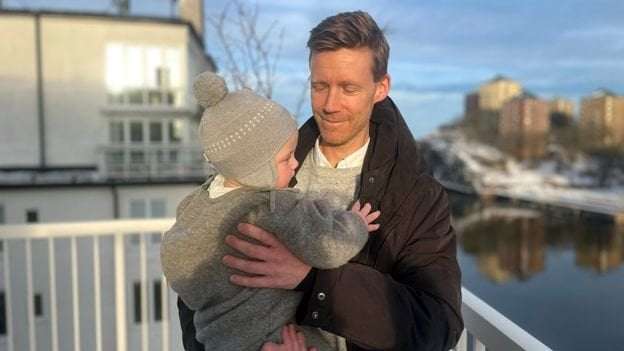Kjell Sarnold has a glint in his eye as he describes fond memories of his parental leave in the 1970s. His son was eight months old, and they bonded during a balmy September when his employer granted him four weeks off work on 90% of his salary – paid by the state – while his wife returned to work full-time.
"We went out for a lot of walks. I had one of those baby carriers on my back. We were outside all the time," says Sarnold, who was living in Stockholm's archipelago at the time. The period also involved changing countless nappies, lots of cooking and learning to comfort his son when he was upset. But on the whole, Sarnold loved it.
He doesn't work for a progressive start-up or a global corporation ramping up its employee experience policies. He's now a 74-year-old retired car mechanic, and his memories are from five decades ago, soon after Sweden became the first country in the world to introduce 180 days of state-funded parental leave that wasn't gender-specific. The idea was it could be shared between couples as they saw fit, giving the same rights to fathers and mothers.
Since 1974, when the policy became law, the number of paid parental-leave days has increased even further. Today, parents in Sweden (including LGBTQ+, adoptive and single parents) are legally entitled to a total of 480 days off work, one of the most generous state-funded packages on the planet. For the first 390 days, most parents can claim benefits equivalent to 80% of their salaries, up to a monthly salary cap of SEK47,750 ($4,650, £3,590). After that, there is a daily statutory compensation of SEK180 ($16, £14).
Sweden's approach offers plenty of insights for countries or workplaces that are looking to offer more gender-neutral childcare policies. Plus, there's a growing body of research highlighting the positive consequences of taking leave on parents' wellbeing. At the same time, however, equality campaigners argue that while Sweden's policies might seem utopic to feminist observers, its success in encouraging parents to share leave has stalled in recent years, and the majority of heterosexual couples still don't share their state-subsidised leave days 50/50.
Sweden's progress in encouraging time off for new fathers must be viewed in the context of its politics. While women's rights movements grew globally in the 1960s and 1970s, its ideologies quickly entered mainstream politics more rapidly in Sweden than in many other countries. Successive Social Democrat prime ministers, most notably Olof Palme, promised to boost gender equality and strengthen the welfare state, using taxes to fund the shift.
"One of the stated goals was to get fathers more involved in care work in the home… and at the same time make it possible for mothers to work more or go back to the workforce sooner," explains Ylva Moberg, a researcher at the Swedish Institute for Social Research, part of Stockholm University.
